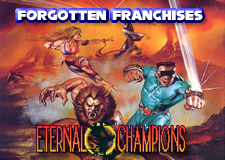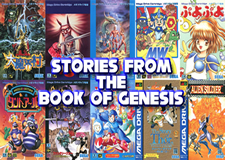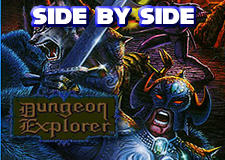Many of the fighting games on the SNES are also on the Genesis, and really only a few are only found on Nintendo’s console. Of them, none are equal to the complexity, plot, or all-out brutality that Eternal Champions brought to gamers everywhere. Developer Deep Water pulled no punches (hah!) and created a game that set out to beat Mortal Kombat at its own game. I think it really would have succeeded too, had Sega not pulled the plug on the franchise just as it was coming into its own.
Author: Ken Horowitz
Interview: Kevin McGrath (Electronic Arts Programmer)
Kevin McGrath started his career in computer programming in 1982 at the ripe age of sixteen for the Minnesota Educational Computing Consortium (MECC) working on educational software for the Apple II. He has worked for or contracted with several of the game industries top companies, including Dynamix, Electronic Arts, SEGA of America and Microsoft. At EA he worked on several SEGA Genesis titles including Populous, The Immortal and Road Rash II.
Stories from the Book of Genesis Vol. 01
Sometimes, trading with a friend can be a hassle, especially if his mother is his chief negotiator. Check out what happens when parents take an active part in trading games in the first installment of our Stories from the Book of Genesis series.
Interview: Mike Posehn (Creator of Strike Series)
As the creator of Electronic Arts’ Strike series, Mike Posehn started a franchise that went on to sell millions and gave players the chance to mix strategy with arcade action. It also let them blow lots of stuff up. Sega-16 chatted with M. Posehn about his time at EA and his work on the Strike games.
Side by Side: Dungeon Explorer (Sega CD vs. TG-16)
The multi-player dungeon crawler Dungeon Explorer debuted on the TurboGrafx-16 and eventually hacked and slashed its way to the Sega CD. Which version is better? Well, you’ll have to read our full comparison and see!





